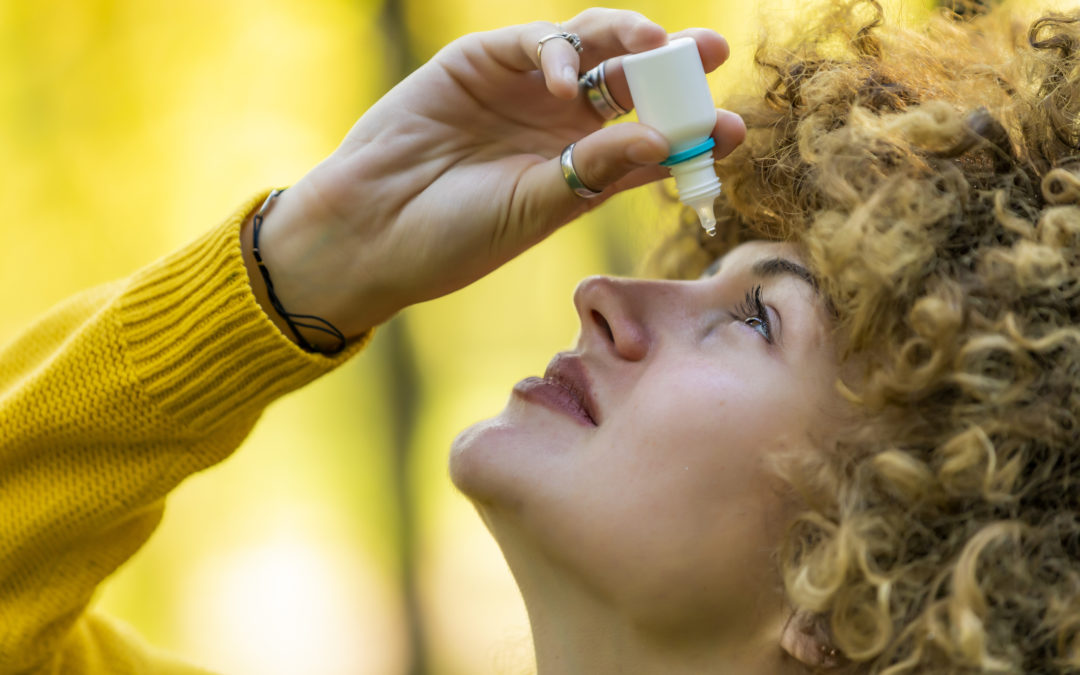Bacteria, viruses, and fungi surround us everywhere! Despite your best efforts to avoid contact with germs, you can’t always prevent it. Fortunately, there are several things you can do to avoid eye infections, such as viral conjunctivitis (pink eye), bacterial blepharitis, and others.
An eye infection occurs when harmful bacteria come in contact with the tissue surrounding the eye. Common eye infections affect the cornea, the clear front surface of your eye, while others affect the conjunctiva, the thin, moist membrane that lines your outer and inner eyelids.
Even though eye infections can cause red, itchy, painful eyes that may be swollen and watery or irritatingly dry and sensitive, most are easily treated and can be avoided.
At Central Nassau Optical, we want all our patients to develop the kinds of healthy habits that prevent them from experiencing the pain, irritation, and inconvenience of an eye infection and the long-term vision damages some of them may suffer.
Here are a few tips to help you prevent eye infections.
1) Make Sure Your Hands are Clean
You can significantly reduce your risk of becoming infected by washing your hands regularly, especially before putting in contact lenses or applying eye drops.
Washing your hands properly requires lathering soap between your fingers for 30-60 seconds on moistened hands, including the backs of your hands.
2) Avoid Excessively Touching Your Eyes
Avoid overly rubbing or touching your eyes as much as possible. The tendency to rub your eyes is natural and, in general, automatic–when they’re itchy or blurry. Keeping your fingers away from your eyes may take more effort than practicing good hand hygiene, but it’s the most effective way to avoid an infection.
3) Clean Your Glasses and Sunglasses Regularly
Although eyeglasses and sunglasses don’t come in direct contact with your eyes, they should still be kept as clean and germ-free as possible. Make sure you use a fresh, lint-free towel every time you clean your glasses.
4) Maintain Contact Lens Hygiene
It’s essential to maintain the highest standard of hygiene and follow all the instructions your doctor gives you when wearing contact lenses to reduce your risk of developing an eye infection. In addition to learning how to maintain your contacts and the case you keep them in, you should:
- Take your contacts out before bed.
By sleeping in your contact lenses, you increase your chances of developing an infection of the cornea called microbial keratitis. Even if you wear extended-wear contact lenses that are FDA-approved for day-to-night wear, including when you sleep, you still need to be aware that sleeping in any type of contact lens increases your risk of eye infections.
- Keep your contact lenses out of water.
If you wear contact lenses while in any type of water, even chlorinated water, you will substantially increase your chance of getting an infection. These infections are rare but difficult to treat. Always remove your contact lenses before you swim, use a hot tub, or take a shower to reduce your risk of contracting an infection drastically.
5) Avoid Sharing Towels
Do not share your towels with anyone else, especially when someone in the house has or recently had an eye infection. Launder your washcloths and bath towels frequently (and in hot water.) Using clean towels and washcloths will genuinely minimize your risk of developing an eye infection. This is also true for bedding, particularly pillowcases.
6) Don’t Share Your Cosmetics and Tools.
Don’t share your cosmetics or other personal care items with anyone to prevent infections. In order to reduce the possibility of contracting an eye infection, make sure you never share makeup, eye drops, brushes, or other eye care products with others.
It is also advisable to get rid of any cosmetics or eye care applicators you may have used on or around your eyes just before or during an eye infection if you wish to prevent re-infection.
7) Remove Eye Makeup Before Bed
Make sure that you remove your eye makeup before you go to sleep. Sleeping with eye makeup increases your chances of developing blepharitis, an inflammation of the eye that causes redness, itchiness, blurred vision, and an ongoing sensation of foreign objects in your eyes.
8) Visit the Central Nassau Optical
Infections of the eye can cause discomfort and inconvenient symptoms, including redness, pain, discharge, and increased sensitivity to light.
Visiting Central Nassau Optical is the best way to get prompt treatment for an eye infection. Delayed treatment of an eye infection might extend or worsen your symptoms, potentially causing long-term vision damage.
If you’re concerned about your risk for eye infections or are experiencing symptoms you’d like to be checked, call Central Nassau Optical. In addition to diagnosing your condition, our team of eye care professionals can recommend the most effective treatment plans for you. There are over-the-counter products for treating eye infections, but you’ll get the best results with professional guidance. Our Levittown, New York offices can be contacted by phone or online using the scheduling tool.

